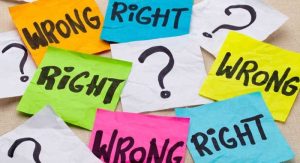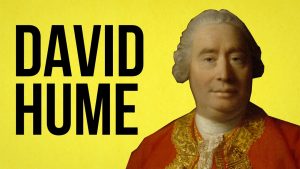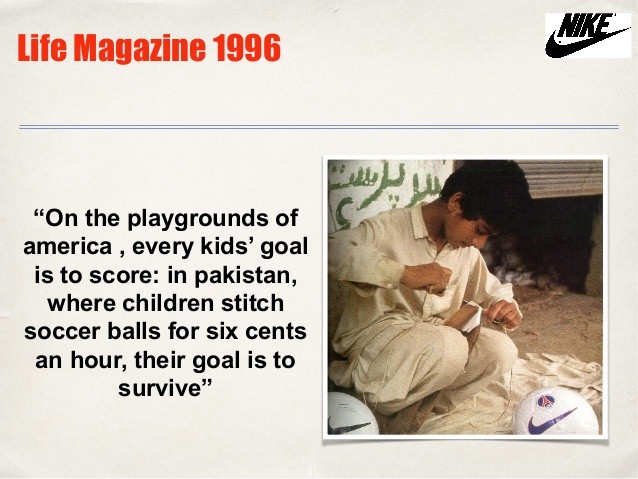Ethics and morality are foundations of human society. Individuals, government, and organizations make decisions in line with the interests and values of the society. Ethics and morality set up path for excellence and they limit wrong doing in society in a world which is in true sense interdependent. Societies, nations and people must necessarily follow ethical behaviour. Ethics refer to rules provided by an external source, e.g., codes of conduct made by government, organizations, school and college etc. whereas morals refer to an individual’s own principles regarding right and wrong.
For example, nuclear ethics is a cross-disciplinary field of academic and policy-relevant study in which the problems associated with nuclear warfare, nuclear deterrence, nuclear arms control, nuclear disarmament, or nuclear energy are examined through one or more ethical or moral theories or frameworks. It is moral duty of every nation to safeguard their nuclear arsenal and fissile material from the reach of terrorists for the security and safety of others as well as their own, because they are responsible for climate change, destruction of mankind and ecology of planet.
Another example for moral behaviours: If we want to save our planet from the worst effect of climate change, we need to get our greenhouse gas emissions to zero by 2070: a target that requires immediate and drastic action, but, our indestructible addiction to fossil fuels makes this goal seem more and more unreachable. Can we make some stringent laws to drastically reduce the usage of fissile fuels? This is a moral issue. Moral reasoning is a thinking process with the objective of determining whether an idea is right or wrong. To know whether something is “right” or “wrong” one must first know what that something is intended to accomplish.
David Hume (April 1711 – August 1776) was a Scottish Philosopher, historian, economist and author, who is best known even today for his highly significant system of philosophical empiricism, scepticism and naturalism. David Hume worked very hard to create a total naturalistic science of man that examined the psychological basis of human nature against philosophical rationalism. Hume believed that passion rather than reason governs human behaviour. He said that genuine knowledge must either be directly traceable to objects perceived in experience, or result from abstract reasoning. There is a relationship between ideas which are derived from experience, he called the rest “nothing but literalism and illusion”, a dichotomy (a division or contrast between two things that are or are represented as being opposed or entirely different) which later was given the name of Hume’s Fork.
Hume’s fork shows us that we can have only two forms of lawful knowledge; relations of ideas and matters of facts. Matters of fact are source of substantive knowledge, facts that can tell us something new about the world. Knowledge in matters of fact is also a subsequent knowledge that is gained after experience and synthetic knowledge is something new about the world.
Our feelings or sentiments produce our actions, so much so that present actions resemble the past actions. We therefore can conclude that human actions depend on their beliefs which are in customary associations with human feelings. Clearly, rationality has no place in the account of morality. Being rational means acting wisely and efficiently to choose the appropriate means to advance one’s goals. Even though reasoning depends upon ideas and matters of fact, its most dramatic outcomes may come of out of feelings. All human actions flow naturally from human feelings, without any interference from human reason.
In major parts of the world, caste hierarchy is one of the oldest forms of social stratification. Deep down, the biggest features of casts is its ability to render a rigid and invasive hierarchical system of inclusion and exclusion. Whether it is India or America, people have not been able to get rid of the caste system. The caste system is based on deep feelings of people with an outcome of prejudice, stereotyping and pigeonhole mentality. Our emotional and intellectual mechanisms work together and sustain each other. Sometimes they cannot be separated at all. Rationality and empiricism (knowledge is based on experience) do not go hand in hand. Only ideas cannot be used to prove matters of fact; like it is pointless to prove existence of God.
We are experiencing progress in society because of some good institutions that have contributed to the quality of human life, scientific research, development in arts art, and education. Progressive businesses have given a lot to society because they have broken down myriad centuries-old barriers of racial, sexual, religious, and ethnic prejudice. And they have been the vehicle for countless numbers of individuals to develop their fullest potentials in achieving their dreams. In short, some business organizations have been prime movers in making it possible for millions to pursue their lives in a wealthy, healthy, rational and exciting world. Good organization is built upon ethical business practices.
Corporate Governance which is offshoot of Business Ethics is based on the foundation that companies should engage in fair dealing with all of their stakeholders who are customers, employees, suppliers, and communities, as well as shareholders. Companies must engage in accordance with the expectations of the larger society in which they operate. An organization exists on its purpose in society. And an organization which exists on a shareholder-centric model also recognizes that it owes a lot to society, therefore, must minimize its negative externalities such as pollution and destruction of ecology.
And finally, for all individuals and organizations integrity is a choice, which depends to a large extent on culture, upbringing, peer influences, etc. it can’t be forced. One who has strong and well-defined standards of integrity behaves with wholeness, integration, honesty, and does right by him and by others.
We see countless professionals giving up their integrity and morals for the sake of money and money is a big addiction. Wealthy people get imprisoned into their lifestyle and their need to impress the world. It’s sad that people forget to create their legacy.
What is your legacy? It’s what you will be able to say about yourself when you’re old and look back at life. It’s about what you have stood for, given to the society, taught, imparted, and left behind. It’s not what you dreamed of being, but what you have been. It’s not a dress rehearsal, but the reality of what you have left behind. Many professionals forget that they have this one chance to build a life that’s meaningful for them. It’s sad that people compromise their legacy for a futile greed to grasp success, money, accolades and power.
















































